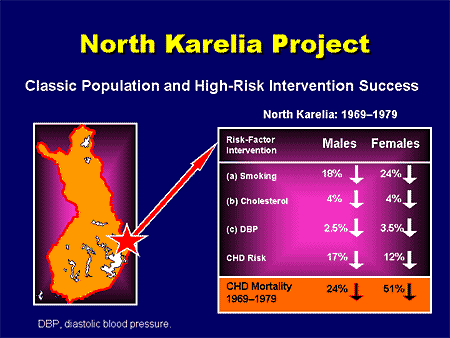Education can be very effective in improving health outcomes through improving lifestyles. The best example I know is the North Karelia project in Finland which when rolled out as a national program reduced the incidence of ischaemic heart disease over 24 years by 65%.
The interventions were a sustained program of education from 1972 onwards . The mortality from heart disease was so high that a political consensus enabled a comprehensive program which included incentivising farmers to move from dairy production to growing berries.
A parliamentary committee visited Finland in 2004 but did not recommend this approach. They concluded “We acknowledge the responsibility of the individual in respect of his or her own health but believe that the Government must resist inaction caused by political anxiety over accusations of “nanny statism”. Government will, after all, have to pay for some of the huge costs that will accrue if the epidemic of obesity goes unchecked. While we have tried wherever possible to take the food industry at its word, and seen it as ‘part of the solution’, we recommend that the Government reviews the situation in three years and then decides if more direct regulation is required.”
As the problem persists we should now appreciate that it is in the national interest to learn from successful projects and respond to “Nanny Statism “ jibes with factual responses.

